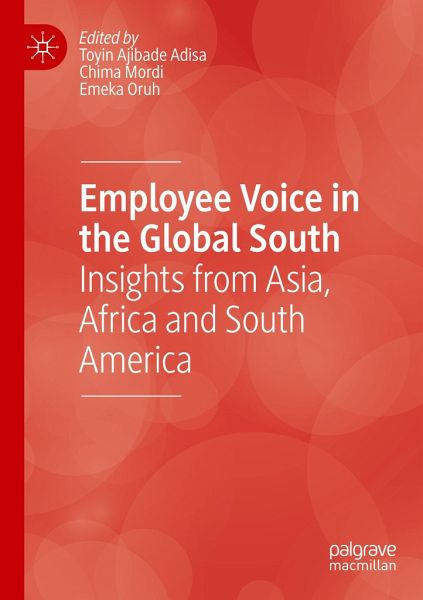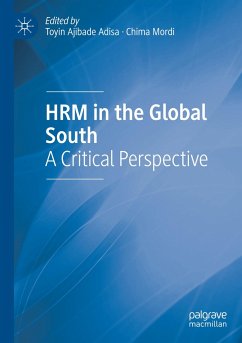
Employee Voice in the Global South
Insights from Asia, Africa and South America
Herausgegeben: Ajibade Adisa, Toyin; Mordi, Chima; Oruh, Emeka
Versandkostenfrei!
Versandfertig in 6-10 Tagen
136,99 €
inkl. MwSt.

PAYBACK Punkte
68 °P sammeln!
Taking readers through the nature and realities of employee voice across the Global South, this book identifies the significance and effects of contexts, cultures, web and social media, and dissimilarity of institutional factors in enhancing employee voice or promoting silence. It addresses general issues affecting employee voice across the Global South to give readers an understanding of employee relations that is country-specific. Readers will also have an understanding of the unique nature of employee voice in thirteen countries - thus broadening the readers' understanding of the subject. C...
Taking readers through the nature and realities of employee voice across the Global South, this book identifies the significance and effects of contexts, cultures, web and social media, and dissimilarity of institutional factors in enhancing employee voice or promoting silence. It addresses general issues affecting employee voice across the Global South to give readers an understanding of employee relations that is country-specific. Readers will also have an understanding of the unique nature of employee voice in thirteen countries - thus broadening the readers' understanding of the subject. Covering employee voice in different countries of Africa, Asia and South America, each chapter draws out the unique and diverse nature of employee voice in each country. The chapters discuss issues ranging from culture, activities of trade union, institutional factors, web and social media, social and organisational justice and their effects of employee voice.
This book provides aninvaluable resource for students and researchers of human resources and international business. It will also be of great interest to HRM practitioners, policymakers and business managers across the globe.
This book provides aninvaluable resource for students and researchers of human resources and international business. It will also be of great interest to HRM practitioners, policymakers and business managers across the globe.












